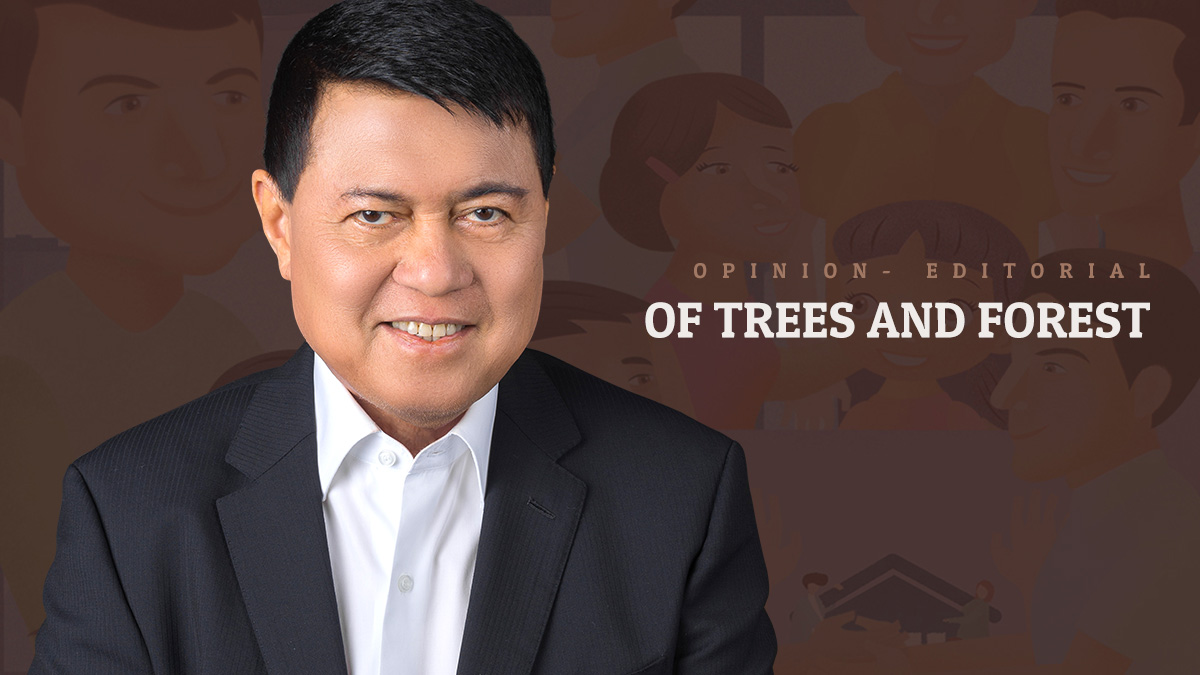
Humanity
As the nation continues to grapple with a pandemic that has affected more than 406,000 Filipinos and has claimed the lives of more than 7,700, a cavalcade of typhoons and severe tropical storms have battered our country in a span of weeks.
Typhoon Quinta, super-typhoon Rolly, severe tropical storm Siony, tropical storm Tonyo, and now typhoon Ulysses came in succession to pummel an already battered population. This has worsened the physical and emotional toll the pandemic has had on Filipinos.
The devastation brought about by the recent typhoon Ulysses was particularly heart-wrenching as it brought back memories of Ondoy. I was deeply affected by the reports, both from traditional and social media, of our kababayans pleading for rescue and help. Some of them were trapped on the roofs of their inundated houses, some crying for help in the middle of darkness.
As I write this column, the National Disaster Risk Reduction and Management Council (NDRRMC) has reported that the death toll from Typhoon Ulysses is at 37—20 in Cagayan Valley, 6 in Calabarzon, 5 in the Bicol region, and 6 in the Cordillera Administrative Region (CAR).
My family and I commiserate with those who were affected by the recent string of strong typhoons. Let us all pray for those who lost their loved ones and their homes.
Sadly, some of the floodings have not even subsided yet but the finger-pointing has already started. Some people have already turned on the blame game. I refuse to play that game. What we need to focus on now is ensuring that those severely affected by these calamities receive the help they need to be able to recover.
I am glad that many of our kababayans have not lost their sense of solidarity. I have seen people doing their best to rescue their neighbors or at least helping to get the word out to local rescue teams. Many Filipinos have sent money, food, water, medicine to help those who felt the wrath of the typhoon. This is what I love about Filipinos. We may disagree on a lot of things—politics, religion, etc.—but we always join hands to help others. It is our humanity and generosity as a people that I admire most.
Let us also thank our military and police forces as well as other volunteer groups who were immediately dispatched to the affected areas to augment the ongoing relief and rescue operations. Specifically, the Philippine Army’s 5th Infantry Division, the Marine Battalion Landing Team-10, and 77th and 17th Infantry Battalions have joined forces to help in Cagayan Valley areas isolated and submerged in floodwaters. The Cagayan local government has reported that 20 out of 29 towns and Tuguegarao City have been either isolated or flooded.
I am particularly impressed with the Department of Public Works and Highways (DPWH) for its proactive response to the disaster. Under the leadership of my son, Sec. Mark Villar, DPWH immediately prepositioned and mobilized 3,698 DPWH personnel and 594 equipment for clearing and rescue operations on areas affected by Typhoon Ulysses. More importantly, DPWH worked fast to make sure major roads and highways were reopened to traffic which was so crucial to ensuring the mobility of search, rescue, and retrieval operations. I am a proud father and a thankful citizen.
I know that some people are just itching to crucify people who they would like to blame for this calamity. I believe that this is not the right time to do this. Let us focus on the remaining rescue operations making sure that people are safe and sound. Then let us marshal all our energies and resources to help these communities rebuild.
Rebuilding is sometimes the hardest part of disasters like these. How do you rebuild the lives of people who lost their families? We can rebuild houses and structures. We can recover financial losses (the Department of Agriculture has recorded a total of P10 billion loss in agriculture). We can clean up muddied streets. But it will take harder work to renovate a battered spirit.
Then we can start asking questions, not about who to blame, but how do we move forward. If mistakes were committed, I believe that it is more productive to study what we can do better in the future rather than wasting our time trying to bring each other down. Of course, if there is criminal negligence, let us prosecute by all means. But I’d rather see this as an opportunity to work together to ensure that we are better prepared next time.
Source:
Manila Bulletin/Views/MannyVillar





